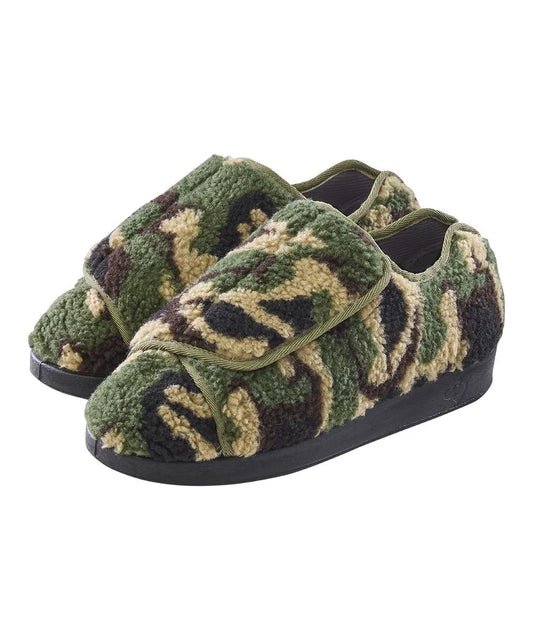Written by Liana Wang
Supporting a loved one with a disability is a journey that requires patience, understanding, and a willingness to learn. Every person with a disability has unique experiences, challenges, and strengths, and there is no one-size-fits-all approach to offering support. What matters most is fostering an environment where they feel valued, respected, and empowered to live their lives to the fullest. The goal isn’t to remove every obstacle for them but to stand by their side, offering encouragement while respecting their independence. If you’re looking for ways to support a family member or friend, here are some insights that might help.
How Can I Help My Loved One Feel Valued and Empowered?
Feeling valued starts with being treated with respect, not pity. People with disabilities don’t want to be seen as burdens, they want to be seen as whole individuals with unique strengths, interests, and aspirations. One of the best ways to empower them is to listen. Ask about their goals and dreams, and let them take the lead in conversations about their needs. Instead of assuming what they need, give them space to express it. If they have a passion, find ways to encourage it, whether it’s enrolling in an accessible class, finding resources, or simply showing interest and support. Confidence grows when people feel that their abilities are recognized rather than their limitations.
What Are the Best Ways to Offer Support Without Being Overbearing?
It’s natural to want to help, but too much help can sometimes feel suffocating. The key is balance by offering assistance when needed while respecting their autonomy. One way is by asking before stepping in. For example, instead of immediately opening doors, carrying bags, or making decisions, ask, “Would you like help with that?” or “Is there anything I can do to support you?” Small gestures like these reinforce that their independence is valued.
How Do I Encourage Independence While Still Being There When Needed?
Encouraging independence means recognizing what your loved one can do on their own and letting them do it, even if it takes longer or looks different. Sometimes, it can be tempting to take over when something seems difficult, but allowing them to complete tasks in their own way builds confidence. Whether it’s preparing meals, managing personal care, or handling daily responsibilities, offering patience and encouragement rather than immediate assistance can help foster a sense of self-sufficiency.
What Language and Attitudes Help Promote Self-Confidence?
Words matter. The way we talk about disability influences how our loved ones see themselves. Instead of using limiting language like “suffers from” or “is confined to,” use neutral or empowering phrases like “has” or “uses.” For example, instead of saying, “He is confined to a wheelchair,” say, “He uses a wheelchair.” It’s a small shift, but it removes the negativity and puts the focus on abilities rather than limitations.
Women's Shirt with Magnetic Buttons
How Can I Educate Myself and Others About Their Disability?
Learning about a disability is an ongoing process. Read books, follow disability advocates, and listen to people with lived experience. It’s also important to challenge misinformation when you see it. If someone makes an inaccurate assumption, correct it. When a child with a disability starts school, for example, classmates may have misconceptions about what they can or can’t do. Educating others with patience and facts can help create a more inclusive and understanding environment.
What Role Does Emotional Support Play in Their Well-Being?
Emotional support is just as important as physical assistance. Living with a disability can come with frustrations, social barriers, and moments of self-doubt. Being a source of encouragement, reminding them of their strengths, and simply being there to listen can make all the difference. Many people with disabilities say that the best support they’ve received is being treated with kindness, respect, and normalcy. This could mean being included in conversations, activities, and decisions just like anyone else.
How Can We Adapt Family Activities to Be More Inclusive?
Family traditions should be for everyone, and sometimes, that means making small adjustments. When planning trips, choosing accessible locations that are accessible can make all the difference. Simple changes like playing games with accessible options, modifying activities to fit everyone’s abilities, or ensuring venues have accommodations allow for a more inclusive experience. It’s not about changing traditions, it’s about making sure everyone can take part.
What Are Some Ways to Celebrate Their Strengths and Achievements?
Everyone deserves recognition for their accomplishments. Whether it’s celebrating milestones, showcasing their talents, or just acknowledging daily victories, these moments build confidence. If someone excels in an interest, finds creative solutions to challenges, or achieves a personal goal, recognizing these moments fosters a sense of pride and accomplishment.
Providing Comfort
Comfort goes beyond physical well-being, it also includes emotional reassurance and creating a sense of security. Sometimes, a simple hug, a kind word, or just sitting quietly together can provide immense comfort. If your loved one experiences anxiety or stress related to their disability, finding calming techniques like deep breathing, listening to music, or engaging in favorite hobbies can help. Being a steady, understanding presence in their life reassures them that they are not alone.
A Story of Support and Growth
When Jake’s younger brother, Sam, was diagnosed with a developmental disability, their family didn’t know where to start. At first, Jake felt overwhelmed, unsure of how to help without overstepping. But as time passed, he learned that the best support wasn’t about doing things for Sam, but about doing things with him. They found hobbies they could enjoy together like playing video games, building models, and watching their favorite sports teams. Whenever Sam struggled, Jake reminded him of his strengths instead of focusing on challenges. Over time, Sam’s confidence grew, and he took on new responsibilities that once seemed out of reach. Their bond strengthened not because Jake had all the answers, but because he showed up, listened, and treated Sam as an equal rather than someone who needed constant help. It was a lesson Jake carried with him for life: support means standing beside someone, not in front of them.
How Do We Handle Social Stigma and Misconceptions Together?
Unfortunately, misconceptions about disabilities still exist. People may stare, ask insensitive questions, or make assumptions. One of the best ways to handle this is with patience and education. If someone asks an awkward question, use it as an opportunity to spread awareness. And if your loved one is ever treated unfairly, stand by them and advocate when necessary. Knowing they have a support system makes all the difference.
Where Can Families Find Support and Resources to Better Assist Their Loved One?
You don’t have to navigate this journey alone. There are countless resources available, from disability organizations to support groups. Connecting with others in similar situations can be incredibly reassuring. Online communities, therapy services, and educational programs can also provide guidance. If you’re unsure where to start, a simple online search for disability support organizations in your area can lead you in the right direction.
Adaptive Clothing: Enhancing Comfort and Independence
Adaptive clothing plays a crucial role in supporting individuals with disabilities, offering designs that prioritize ease of dressing, comfort, and style. These garments are thoughtfully crafted to address specific challenges, making daily routines more manageable and boosting confidence. Here are a few notable adaptive clothing items that you could get for a loved one to help with feeling a sense of normalcy:
-
Magnetic Closure Shirts: Traditional buttons can be challenging for those with limited dexterity. Magnetic closure shirts provide a practical alternative, allowing individuals to dress with ease while maintaining a classic look. Women's Shirt with Magnetic Closure
-
Pants with Side Zippers: For individuals who use wheelchairs or have limited lower-body mobility, pants with side zippers can be a game-changer. These designs enable easier dressing and undressing without the need to stand or balance on one leg. Men's Pants with Side Zippers
-
Adaptive Footwear: Shoes with features like front zippers or adjustable closures accommodate various foot shapes and conditions, ensuring both comfort and support. Kid's Shoe with Front Zipper
Integrating adaptive clothing into your loved one's wardrobe not only simplifies daily tasks but also promotes a sense of independence and personal style. Exploring brands like June Adaptive can provide a range of options tailored to diverse needs, ensuring that fashion and functionality go hand in hand.
Boy's Lightweight Shoes with Front Zipper Access
Final Thoughts
Supporting a loved one with a disability isn’t about being perfect, it’s about being present. It’s about learning, listening, and making sure they know they are loved and valued. Through small acts of kindness, open conversations, and a willingness to adapt, we can create a world where everyone, regardless of ability, feels included and empowered.
At the end of the day, it’s not just about helping, but about fostering an environment where our loved ones can thrive. Every step we take to uplift, encourage, and support them contributes to a more inclusive and compassionate world. And while there will always be challenges, facing them together with understanding and patience makes all the difference.
Find the mentioned products and more at JuneAdaptive.com. Subscribe to our newsletter at the bottom of this page for more content like this.


















